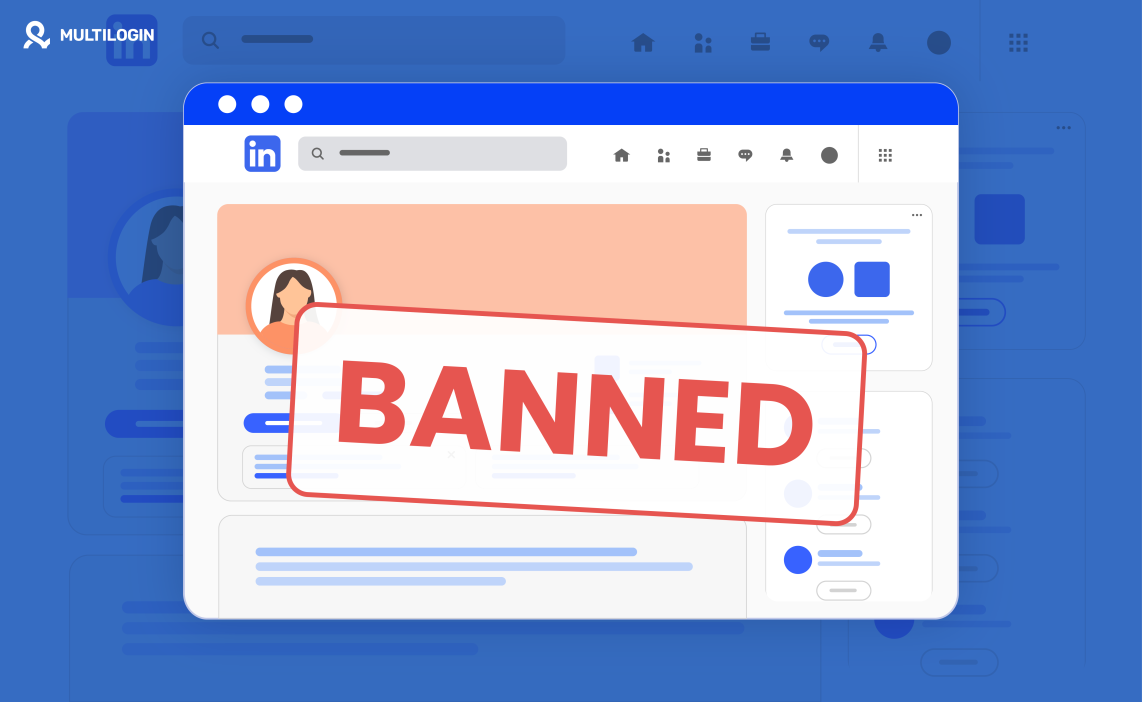Web scraping has become an invaluable tool for businesses, marketers, and researchers seeking to gather data from various platforms, including Facebook Marketplace. This digital marketplace offers a treasure trove of data that can be analyzed to gain insights into market trends, consumer behavior, and competitor strategies.
However, web scraping on Facebook Marketplace comes with its own set of challenges, including legal implications and the risk of account bans.
This guide explores the intricacies of web scraping on Facebook Marketplace, offering tips on how to navigate this complex process while minimizing risks.
What is Web Scraping on Facebook Marketplace?
Web scraping refers to the process of using automated tools or scripts to extract data from websites. On Facebook Marketplace, this data might include product listings, prices, seller information, and customer reviews. The extracted data can then be used for various purposes, such as market research, competitive analysis, and product development.
Why Scrape Data from Facebook Marketplace?
Market Research: Gathering data on pricing, product availability, and market trends to make informed business decisions.
Competitive Analysis: Monitoring competitors’ product offerings and pricing strategies.
Product Insights: Identifying popular products and understanding consumer preferences to inform product development.
Legal and Ethical Considerations
Is Web Scraping Legal?
Web scraping falls into a legal gray area, particularly when it involves platforms like Facebook, which have strict terms of service. Facebook explicitly prohibits unauthorized data scraping, and violating these terms can result in account suspension, legal action, and significant penalties.
Data Privacy Concerns
Scraping data from Facebook Marketplace raises significant privacy concerns. Personal information, such as seller details and customer interactions, is often scraped along with product data. This can violate privacy laws like the General Data Protection Regulation (GDPR) in Europe or the California Consumer Privacy Act (CCPA), leading to severe legal repercussions.
How to Scrape Data from Facebook Marketplace
Use Legal Alternatives
Instead of risking penalties, consider using Facebook’s API or other legal tools designed for data extraction. These options provide a safer, compliant way to gather data.
Manual Data Collection
For small-scale data needs, manually collecting data by copying and pasting it into a spreadsheet can be a time-consuming but safe alternative to automated scraping.
Tools for Web Scraping
If you choose to proceed with web scraping, several tools are available:
Octoparse: A no-code scraping tool that simplifies the data extraction process.
ParseHub: Known for handling complex and dynamic web pages, this tool is suitable for users with minimal coding experience.
Scrapy: A Python-based framework that offers developers a customizable and powerful tool for automating data scraping tasks.
Risks of Web Scraping Facebook Marketplace
Account Suspension
Facebook actively monitors and restricts accounts that engage in web scraping. If your account is flagged, you can suffer from Facebook shadow-banning you risk being banned from the platform, losing access to valuable data and marketing opportunities.
Legal Consequences
In addition to account suspension, scraping Facebook Marketplace without authorization can lead to legal action from Facebook. The company has a history of pursuing legal cases against those who violate its terms of service, resulting in hefty fines and court costs.
Data Integrity
Scraped data can often be incomplete or inaccurate due to the dynamic nature of web content and anti-scraping measures implemented by Facebook. This can lead to misleading conclusions if the data is not carefully validated.
How to Avoid Detection While Scraping
Use Proxies and VPNs
Rotating proxies or using a VPN can help disguise your IP address, making it harder for Facebook to detect that you’re scraping data. However, this method is not foolproof and still carries significant risks.
Mimic Human Behavior
Ensure that your scraping tools mimic human browsing behavior. This includes setting random delays between requests, limiting the number of requests per minute, and avoiding repetitive patterns that could trigger Facebook’s anti-scraping algorithms.
Leverage Browser Automation
Tools like Selenium allow you to automate browsing actions in a way that closely replicates human interaction with the site, reducing the likelihood of being flagged by Facebook’s systems.
Ethical Web Scraping Practices
Obtain Consent: If scraping data that includes personal information, ensure you have the consent of the individuals involved.
Respect Robots.txt: Adhere to the website’s robots.txt file, which outlines the site’s scraping policies.
Limit Data Collection: Only scrape the data you need and avoid collecting unnecessary personal information.
Antidetect Browsers: A Safer Approach to Data Collection
For those managing multiple accounts or needing to scrape data from Facebook Marketplace without raising red flags, Multilogin offers a solution. Multilogin allows users to create unique browser profiles with distinct digital fingerprints, making it appear as though each account is managed from a different device and location.
Key Features of Multilogin:
Isolated Browser Profiles: Each account can be managed in its browser profile, preventing cross-account contamination.
Unique Digital Fingerprints: Multilogin assigns each profile a unique digital fingerprint, making it nearly impossible for Facebook to detect that all accounts are being managed from the same device.
Enhanced Privacy and Security: Protects against browser fingerprinting, ensuring accounts remain anonymous and secure from Facebook’s tracking algorithms.
Final Thoughts
Web scraping on Facebook Marketplace offers valuable insights for businesses and researchers, but it comes with significant legal, ethical, and technical challenges. While the potential rewards are high, so are the risks, including account suspension, legal action, and compromised data integrity.
For those who need to gather data from Facebook Marketplace, using legal alternatives like the Facebook API, practicing ethical scraping methods, or leveraging tools like Multilogin can help navigate these challenges while minimizing risks.
Always prioritize compliance with Facebook’s terms of service and data privacy laws to avoid potential pitfalls.


